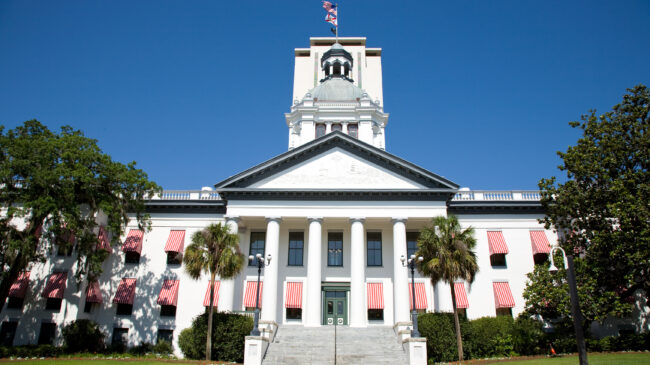Opening Florida’s 2021 legislative session, State Senate President Wilton Simpson gave a dire warning to participants of the Florida Retirement System — the plan that provides retirement benefits for state workers, many local workers and teachers in Florida. “Our current retirees and every state employee should be very concerned. You will hear that Florida’s pension plan is better than most. And it is. That’s what every state always says right up until the time that they cannot pay the unfunded liability.”
Financial models and annual reports published by the Florida Retirement System (FRS) are clear—the pension plan is in serious trouble. Unfortunately, some legislators and stakeholders mistakenly believe that FRS is in good shape.
When State Sen. Ray Rodriguez, a Ft. Myers Republican, introduced Senate Bill 84, the first step in the Senate’s 2021 effort to reform FRS, press reports were filled with quotes from some legislators and stakeholders assuring us that FRS is a gold standard plan compared to others states and is over 80 percent funded, which everyone knows means it is in fine health, and legislation in 2016 fixed FRS so no further changes are needed.
No one should believe these myths — they don’t stand up to the facts.
The FRS pension plan had an unfunded liability of $36 billion as of last year. That means the state is short $36 billion of what it needs to have invested in the market right now in order to meet the retirement benefits promised to generations of workers and retirees. The bulk of this pension debt — over $32 billion — is caused by a long history of underperforming investments and changes to actuarial assumptions to prepare for lower investment returns in the future too.
Similarly, as of 2020, the Florida Retirement System only had 82 cents for every dollar of pension benefits already promised to public employees. While many legislators may take it as an article of faith that some financial experts consider pension funds at least 80 percent funded to be in good shape, no professional actuarial organization considers less than 100 percent funding to be appropriate for a pension plan.
As the Society of Actuaries put it: “[A pension] plan’s funding goal should always be 100 percent of the plan liability calculated assuming median expected future investment returns.”
No retired teacher living off an FRS pension should spend the rest of his or her life worrying if their pension is secure because the state followed convenience rather than sound pension management principles.
As an example of how fragile the FRS pension plan is, lowering its assumed rate of investment return just slightly — from 7.4 percent to 7.0 percent — the last two years has resulted in roughly $779 million in new, recurring annual spending from the budget just to keep up. And $368 million of those costs are being paid by Florida’s K-12 school districts— dollars that are going to cover unfunded pension benefits for past work instead of educating kids in the classroom today and tomorrow. A roughly $180 million per year bill to school districts today could balloon with just one bad year on Wall Street when the state doesn’t make its 7 percent investment goal.
No retired state worker should have to hope — or worry — that future legislators and taxpayers will pay for their pension every time the stock market has a bad year or there is a recession. The state budget is also vulnerable to the Florida Retirement System’s ongoing challenges. Current annual payments to FRS by the state are about $3.25 billion, but pension debt payments keep pushing that number up. And all it takes is the next recession and the legislature is staring down the double barrel of falling revenue and ballooning retirement plan payments that, according to new stress testing recently published by Reason Foundation, could easily double.
That will punch a hole in the budget considerably larger than the pandemic recession did this year and would likely require billions in cuts to other parts of the budget or commensurate tax hikes.
Legislative changes made to FRS in 2000, 2011, and 2017 helped but, given that pension debt has only kept growing, obviously did not solve the problems. FRS funding still depends too much on averaging at least 7 percent returns on its investments, something it has fallen far short of over the last 20 years, averaging just 5.6 percent.
When returns fall short, the pension debt gets larger and pension contributions must rise to keep pace. Independent advisers and the Florida Retirement System’s own actuaries all suggest the return assumption on investments should be 6.5 percent, at most.
Don’t buy the myths that the Florida Retirement System is just fine. It is not. And protecting teacher and other government worker retirement benefits that have been promised to them, as well as state budgets and taxpayers, means FRS needs significant reforms and it needs them now.
State Sen. Simpson should be commended for highlighting public pension reform as a priority for this legislative session.
A version of this column previously appeared in Florida Politics.
Stay in Touch with Our Pension Experts
Reason Foundation’s Pension Integrity Project has helped policymakers in states like Arizona, Colorado, Michigan, and Montana implement substantive pension reforms. Our monthly newsletter highlights the latest actuarial analysis and policy insights from our team.

